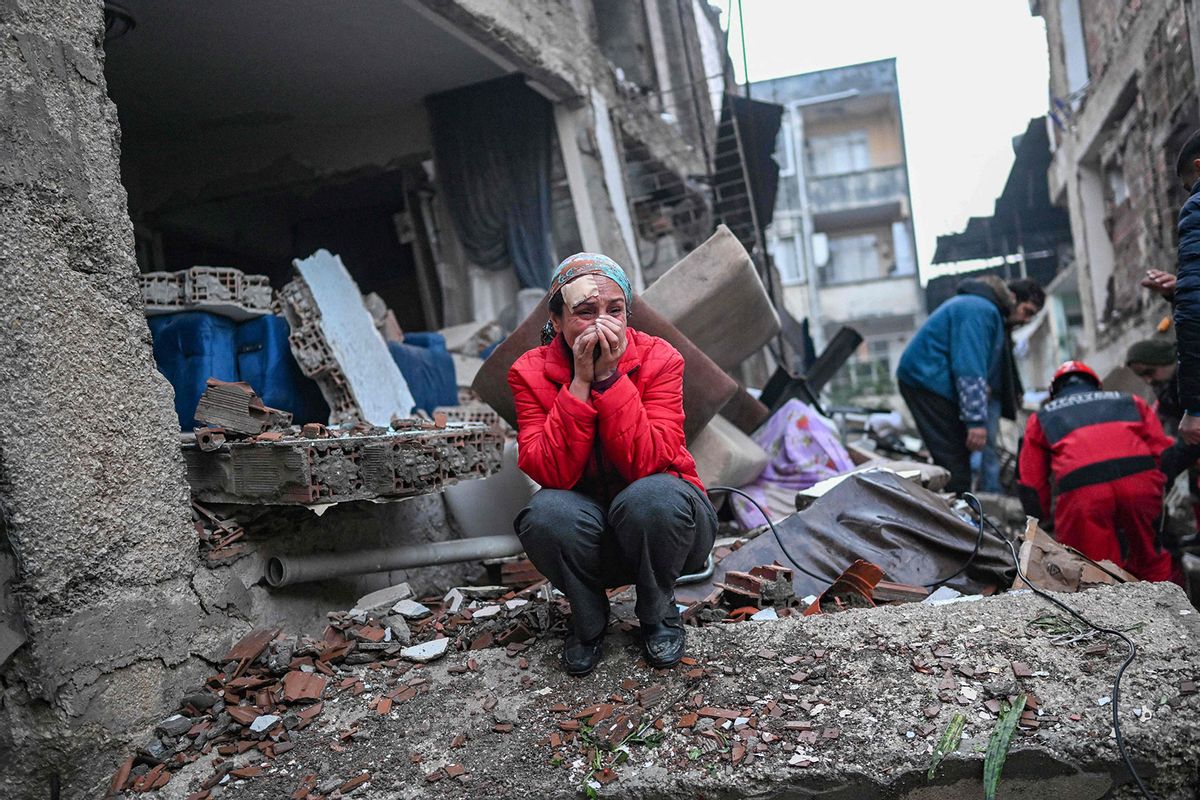A devastating series of earthquakes with a 7.8 magnitude hit Turkey and Syria resulting in the deaths of over 22,000 people and injuring tens of thousands more, making it one of the deadliest earthquakes in the 21st century.
ActionAid, a global federation working with more than 15 million people, told Salon that the earthquakes exacerbated the suffering of Syrian women and girls who have had to support their families through years of conflict, only to lose their temporary homes.
The number of widows and female-headed households, as well as orphans, has increased since the Syrian civil war began 12 years ago, and the recent earthquakes have left them with an uncertain future.
Sawser Talostan, a local emergency responder working with ActionAid's partner Violet, said that the early morning of February 6 brought back traumatic memories for Syrian refugees living in the impacted area.
"Overwhelmed with flashbacks from the Syrian war, people started absorbing the tragedy the morning after," Talostan said. "After a few hours, when they went back to their homes to grab some stuff, the strongest aftershock took place. It was a massive 7.5 earthquake which caused the remaining standing buildings to collapse, and so the tragedy aggravated."
The Syrian people have been displaced multiple times from their temporary homes due to the violence of war, and now natural disaster. The northwest of Syria is home to 4.2 million people who reside in temporary shelter such as tents and fragile homes. After the earthquake hit, the thousands of mothers and children who survived found themselves displaced once again in freezing temperatures.
"Children do not even know the meaning of the word home because they were born in, or live in a tent, and some of them do not even know the meaning of the word school," Talostan said.
Families in Syria have faced a bleak economic crisis for years, resulting in food insecurity, the collapse of public services and frequent power outages. Lack of access to clean water resulted in an outbreak of cholera at the end of 2022, which is still ongoing.
Racha Nasreddine, the regional director for ActionAid in the Arab Region covering Syria, Lebanon, Jordan, and Tunisia, says that their team is especially "concerned for the safety and wellbeing of women and their children already displaced by the Syrian conflict."
Want a daily wrap-up of all the news and commentary Salon has to offer? Subscribe to our morning newsletter, Crash Course.
In 2015, Nasreddine led the response to the Syrian crisis in the neighboring countries of Jordan, Iraq, Lebanon, Egypt and within the diaspora.
"Many women affected by the earthquake today are [the] head of households, this disaster is adding to their suffering, and they require re-doubled support," she explained.
"There is an urgent need for food, water, blankets, shelter, and winter clothes. In a disaster like this, women and girls are highly vulnerable, more exposed and at risk of exploitation; their protection and safety is our top priority," she added. "We are providing protection services and safe spaces for women to shelter, breastfeed and wash their children and access the emotional support the need to cope with shock and trauma.''
First responders on the ground remain with the families and are assessing the additional support needed including protection, psychosocial support, and menstrual health kits. They are currently calling on the international community to ensure the humanitarian response to the earthquake is adequately funded and that women, children, and survivors of gender-based violence receive the specialized care they need.



Shares